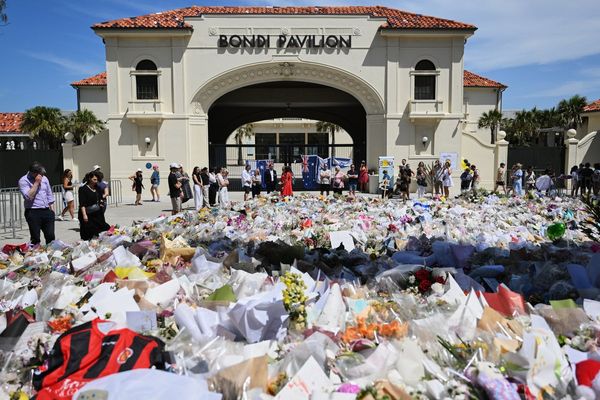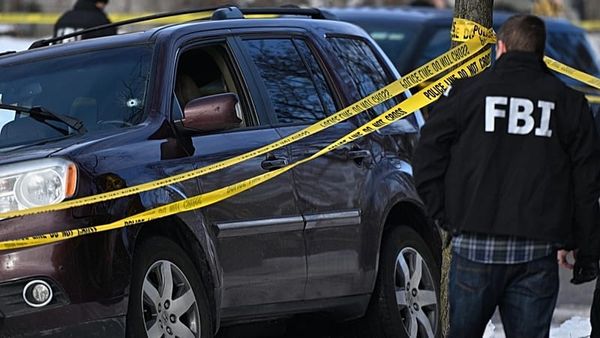Welcome to the Wednesday, January 17, Brew.
By: Mercedes Yanora
Here’s what’s in store for you as you start your day:
- Donald Trump wins Iowa Republican caucus
- 12 candidates are running in the March 5 nonpartisan primary for Los Angeles County District Attorney
- 44 candidates filed for congressional and statewide offices last week
Donald Trump wins Iowa Republican caucus
You likely already know that Former President Donald Trump won the Iowa Republican caucus with 51% of the vote. Florida Gov. Ron DeSantis placed second with 21%, followed by former South Carolina Governor and U.N. Ambassador Nikki Haley with 19% and businessman Vivek Ramaswamy with 8%. No other candidate received more than 1% of the vote. Here’s what that means in terms of how the delegates will be allocated.
Iowa’s Republican caucus is not a direct election. People vote for a particular candidate, and based on the results of the vote, Iowa’s Republican Party allocates delegates proportionally. These delegates then vote to formally select a candidate as the presidential nominee at the Republican National Convention.
Since Iowa allocates its delegates proportionally, Trump received 20 of Iowa’s 40 delegates, DeSantis nine, Haley eight, and Ramaswamy three. See the chart below for complete results as of noon on Jan. 15, 2024:
In 2020, Trump received 39 delegates and Bill Weld received one. In 2016, Ted Cruz won eight delegates, Trump and Marco Rubio won seven each, and Ben Carson won three. Five other candidates received one each.
Following the Iowa Republican caucus, both Ramaswamy and former Arkansas Gov. Asa Hutchinson withdrew from the race, leaving four noteworthy candidates in the running: Trump, DeSantis, Haley, and businessman and pastor Ryan Binkley. Former New Jersey Gov. Chris Christie withdrew from the race on Jan. 10.
Iowa’s delegates will be sent to the Republican National Convention, which will take place from July 15 to 18 in Milwaukee, Wisconsin. If only one candidate’s name is submitted at the national convention, then all Iowa delegates are bound to that candidate. If more than one name is submitted, Iowa’s delegates are bound to their assigned candidate through the first round of voting only. According to the Republican Party rules, a candidate must receive 1,215 delegates at the national convention to secure the presidential nomination from the party.
The next presidential primary will take place on Jan. 23 in New Hampshire. Both the Republican and Democratic parties will hold a primary on that date. The Republican primary will decide the allocation of New Hampshire’s 22 Republican delegates. There are 24 candidates on New Hampshire’s Republican ballot, including Binkley, DeSantis, Haley, and Trump.
It is uncertain whether the Democratic primary will have any effect on the allocation of New Hampshire’s 33 delegates to the Democratic National Convention. The Democratic National Committee (DNC) says it will not seat New Hampshire’s delegation at the national convention because the state did not change its presidential primary date to match the DNC’s new calendar, which scheduled New Hampshire’s Democratic primary on Feb. 6.
There are 21 candidates on New Hampshire’s Democratic primary ballot, including two of the noteworthy candidates we have identified: U.S. Rep. Dean Phillips (Minn.) and author Marianne Williamson. President Joe Biden did not file to appear on the ballot since the state did not adhere to the DNC’s primary calendar, but it is possible he could receive votes as a write-in candidate.
12 candidates are running in the March 5 nonpartisan primary for Los Angeles County District Attorney
We are continuing our coverage of the most compelling primaries — the battleground elections we expect to have a meaningful effect on the balance of power in governments or to be particularly competitive.
Today, we’re looking at the nonpartisan primary for Los Angeles County District Attorney, taking place on March 5.
Twelve candidates are running, with five leading in endorsements and local media attention: Incumbent George Gascón, Jeff Chemerinsky, Jonathan Hatami, Nathan Hochman, and Eric Siddall. Although the election is nonpartisan, Gascón, Chemerinsky, Hatami, and Siddall are registered Democrats and Hochman is an independent.
According to LAist, the election is “expected to be closely watched across the country as a barometer of how the public is feeling about criminal justice reforms amid an increase in property crime. Property crime is up 17.4% in the city of L.A. so far this year compared to two years ago.”
Gascón was elected in 2020 on a platform of not seeking the death penalty, limiting the imposition of cash bail for misdemeanors and nonviolent felonies, and resentencing inmates whose sentences he described as excessive. Gascón said his policies have made county residents safer, and that they will remain in place if re-elected.
Chemerinsky served as a federal prosecutor in the Central District of California before resigning to run for district attorney. Chemerinsky said he would prioritize public safety more than Gascón, whom Chemerinsky criticized for Gascón’s opposition to enhancing sentences in crimes involving firearms.
Hatami is a deputy district attorney. Hatami said he was the first prosecutor to publicly speak out against Gascón after Gascón ordered him to strike information from his prosecution of a murder case. Hatami said he supports changes aimed at rehabilitating rather than punishing criminals but only when balanced with public safety.
Hochman is a defense attorney and former federal prosecutor. Hochman said Gascón has prioritized implementing his own policy ideas over ensuring public safety. Hochman said he would prioritize public safety and victims’ rights over reducing the length of sentences.
Siddall is a deputy district attorney. As the former vice president of the county prosecutors’ union, Siddall sued Gascón over Gascón’s prohibition on enhancing sentences. Siddall said he supports both changes to the criminal justice system that encourage rehabilitation of criminals and promote public safety.
If one candidate receives more than 50% of the vote, that candidate will win the election outright. Otherwise, the top two finishers will advance to a general election on Nov. 5, 2024. According to CalMatters, “Gascón’s best chance for survival probably rests on one of his more conservative challengers, Jonathan Hatami or Nathan Hochman, making it to the runoff. … If either Siddall or Chemerinsky made the runoff against Gascón, the contender would have ample room to find votes in the center, leaving Gascón with little space to expand his narrow base.”
44 candidates filed for congressional and statewide offices last week
Forty-four people declared their candidacies for congressional or statewide offices in the past week. All of these candidates declared before their state’s official filing deadline.
Eighteen of those candidates are Democratic, while 24 are Republican. Two are minor-party candidates.
Twenty-one candidates are running for Congress, 21 for state legislatures, one for a governorship, and one for a lower state executive office.
Since the beginning of the year, we have identified 63 declared candidates for congressional and statewide offices. At this time in 2022, we had identified 159 declared candidates for 2022, 2023, and 2024 races. At this time in 2023, we had identified 17 declared candidates for 2023 and 2024 races.For all 2024 races we research, we’ve collected 3,847 declared candidates in total. This number includes candidates who have filed on or before their state’s filing deadline.
An official candidate is someone who registers with a federal or state campaign finance agency before the candidate filing deadline or appears on candidate lists released by government election agencies. A declared candidate is someone who has not completed the steps to become an official candidate but who might have done one or more of the following:
- Appeared in candidate forums or debates
- Published a campaign website
- Published campaign social media pages
- Advertised online, on television, or through print
- Issued press releases
- Interviewed with media publications







